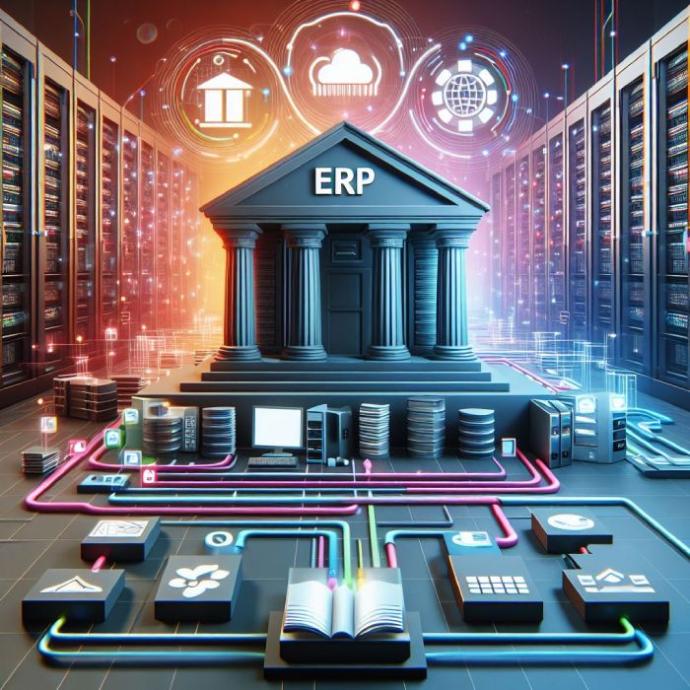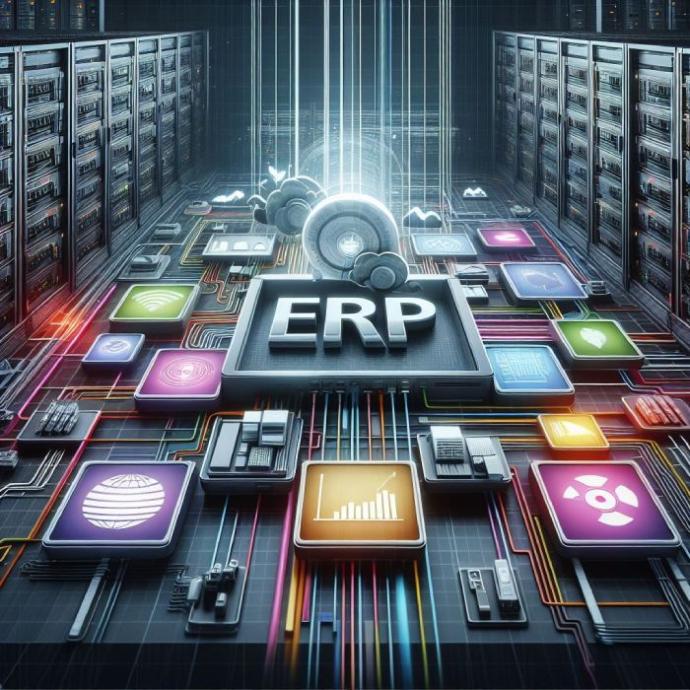R2D2 knows it better than anyone: integrating an ERP system into a business can sometimes make a business feel unwell: when new features needed to be added to his little robot body, his loyal companion, C-3PO wasn't very enthusiastic. And was it really worth going to the trouble of enabling him to fly or discharge an electric current? Wasn't the software he already had powerful enough? After several hours of negotiation, R2D2 finally managed to convince his friend of the merits of his request. To prevent you from falling into the same trap and spending hours pontificating, he has agreed to discuss the benefits for IT departments of deploying an ERP system in a SME. Beep, beep, follow the guide!

Benefits of ERP for the IT Department
The IT department (or the IT business partner) of a SME or micro-business is no longer restricted to deploying and maintaining the tools needed for the business to operate correctly. For many years, its role has been changing and growing in importance. It is often responsible for ensuring digital transformation within SMEs. Even though decisions are often taken by the CEO, the IT department is still in the front line when an ERP system is deployed.
These projects are not always perceived favorably, as there have been many cases where integration and acceptance have gone poorly. However, ERPs have many virtues, particularly for the IT department. Indeed, they provide a unified vision of the business and the ability to rationalize its processes. The IT department gains increased transparency: problems with information silos disappear because everything is managed through the ERP software.
These management solutions therefore provide greater overall control of the IT systems. For example, installed kit can be managed via a single platform, notifications can be scheduled, and so on. These represent genuine time savings for IT departments that are very frequently overloaded with work. HelpDesk features are also very welcome: instead of a variety of different e-mail discussions, everything is managed through the ERP solution by using a ticketing system. What a great way to make the IT department more confident, relaxed, and thorough!
ERP: benefiting more than just the IT Department


A modern ERP solution for an optimized IT System
To save hours of deployment and maintenance effort for your IT department, you need to carefully choose your new ERP solution. All management software for SMEs have their unique characteristics, and some are more restrictive than others in terms of hosting or updates, for example. If you would like to satisfy all departments within your business, including the IT department, opt for new generation ERP systems that use a SaaS model. The cloud will significantly reduce the complexity of integrating the solution (reducing costs as a consequence).
No more to undertake costly, time-consuming server maintenance as everything is done online. The open source aspect can also be highly beneficial as it is synonymous with more bespoke development. Open source ERP generally have their own, highly dynamic communities of users and developers. They are therefore constantly changing to keep up with the latest technology and user trends. This guarantees that you will benefit from a management solution that evolves over time and that perfectly aligns with the needs of your SME.
And, as R2D2 would say: "Beep-bee-bee-boopbee- doo-weep"
"With SLA, requesting you will be."
When drafting a new agreement with your integrator, be demanding in terms of your SLAs (Service Level Agreements). Review the terms and negotiate them if required to ensure there are no nasty surprises.” -Master Yoda's advice






